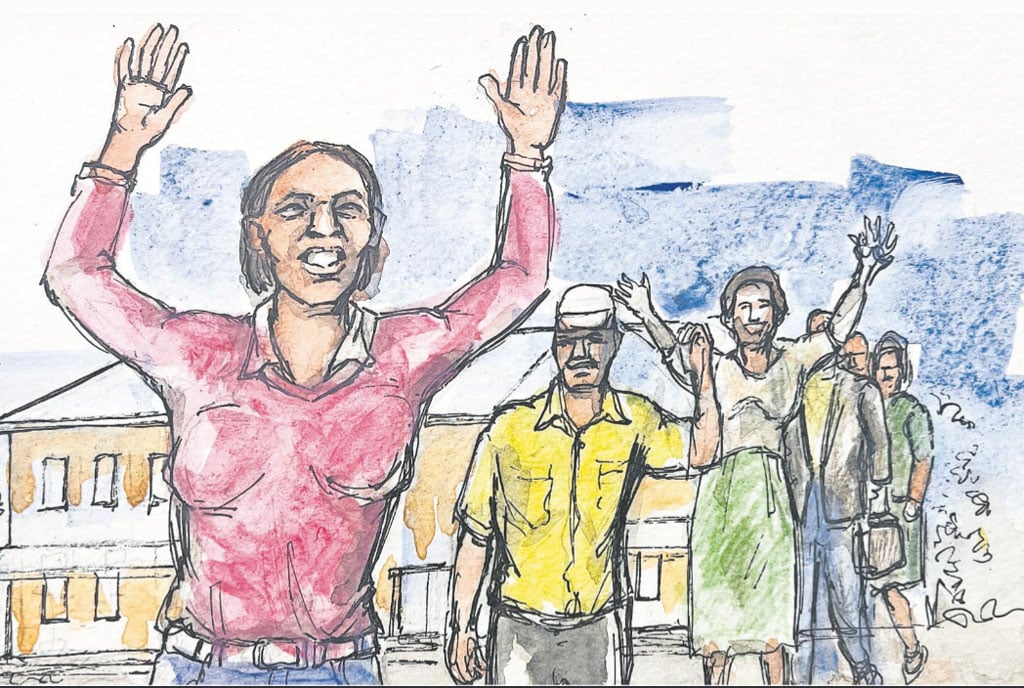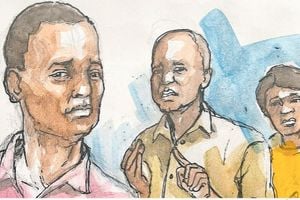
A patient filed a case of medical negligence against a doctor, in which the patient alleged that the doctor failed to exercise reasonable skill and care, when he operated on her. The patient had a fistula in her anal region that required surgery, but the operation caused extensive disruption of her anal sphincters, resulting in loss of continence to stool and gas.
In defence, he doctor contended that the surgery complained of was done with utmost professional skill and care. He denied the particulars of negligence attributed to him.
The medical reports before court indicated that the doctor saw the patient for the first time in June 2000 and made a diagnosis of a fistula at the 7 o’clock position, as well as a large cyst. He carried out two operations on her; the first in June, 2000 and the second in March 2001.
The fistula recurred after the first surgery and this is what necessitated the second surgery. After the second operation, the patient was rendered incontinent to liquid stool, as well as flatus. The question that court had to address was whether or not the doctor was negligent in the way he performed the surgery.
The issue of consent for surgeries was also raised by the patient. She contended that she did not sign the consent for two surgeries. The law is that a doctor, who performs surgery without the consent of his or her patient, save in case of emergency or mental disability, is guilty of the civil wrong of trespass to the person and is also guilty of the criminal offence of assault.
The medical board defines consent as the acceptance by an individual to receive treatment from a doctor. The individual giving consent must be mentally competent and aged 18 years, informed, free and voluntary.
The surgeon, however, denied that the patient did not consent to the operation.
The patient was taken to have given her consent, when she is willing and freely accepted to be admitted in the hospital and did not object to the surgery. The doctor further told court that he explained the nature of the surgeries to the way of diagrams, which were presented in court.
The surgeon was given time to produce consent evidence, but it was never availed to court. The surgeon also failed to warn the patient of the material risks attached to the surgery. Court ruled that it is a requirement to obtain valid consent before surgery and anything less than this cannot be excused.
It was on record that the patient consulted another doctor after the second surgery and this doctor examined her and referred her to a specialist for further management. The specialist’s conclusion was that at the second operation, the patient sustained a serious injury that would inconvenience her in material ways for the rest of her life.
Court relied on the opinions of different doctors to conclude that the patient had developed incontinence to gas and soft stool, after the second surgery that was performed on her by surgeon in March 2001.
The surgeon made an initial diagnosis of a fistula at the 7 o’clock position. Court, however, noted the evidence of another doctor, who observed that, although there was clear evidence of previous surgery on the patient’s anal region, there was no evidence of surgery at the 7 o’clock position.
An ultra-sound report showed that the patient had suffered a complete fragmentation of the internal sphincter and external disruption of the external sphincter, which was consistent with damage following stretch. A doctor who reviewed the patient concurred with the report.
It was the finding of court that the doctor being an expert in anal and rectal surgery failed to exercise a reasonable degree of skill and knowledge in the surgery that he performed on the patient. Although the doctor claimed that he performed the surgery at the 7 o’clock position, this was disputed by another colleague who examined the patient and found no evidence of surgery at that position.
Court believed the version of the second doctor and the reason for this was that had a previous surgery been performed on the patient, then the surgeon should and would have noted it; he did not. The doctor was the last person to operate on the patient and he could not therefore escape liability.
Court observed that the quality of the patient’s social, family and professional life had been curtailed as a result of the damage to her anal sphincters. She lost desire for sex and this situation affected her marriage. The worsening incontinence directly contributed to the multiple urinary tract infections that the patient suffered from.
The patient lost a job because of her condition and was constantly in agony and embarrassment while in a public place due to her incontinence to flatus.
To court, the nature of the patient’s injuries and the resultant effect on her social, family and emotional life could not be overstated.
Court was guided by the principle that damages awarded in such cases must be reasonable and within limits set out by decided cases and also affordable.
Large awards are inevitably passed on members of the public, the vast majority of whom cannot afford the burden in the form of increased costs and insurance or increased costs. The patient was awarded a compensation of the equivalent of Uganda Shillings fifty million.
The patient also sought damages for future earnings. The basis of the claim was that it was difficult for her to be in close proximity to the public owing to the incontinence she suffered. The patient was a 28 years and a professional.
The patient submitted that were it not for the injuries she suffered after surgery, she would be working and earning a living up the age of retirement. The doctor contested this award. The doctor told court that at the time this case was filed the patient was working and continued to work.
To court, compensation for loss of future earnings are awarded for real assessable loss that can be proved by evidence. To court the patient adduced ample evidence to prove that she was earning less than what she would have been earning were it not for the injuries.
This was because she was unable to work anywhere and this limited her chances of getting a higher pay. Court determined that she was entitled to damages for future earnings. Court used a multiplier of 30 years and a difference of the salary she was missing out on to award her an equivalent of Shs400m. Court also awarded to her costs of future surgery and air travel and special damages.








